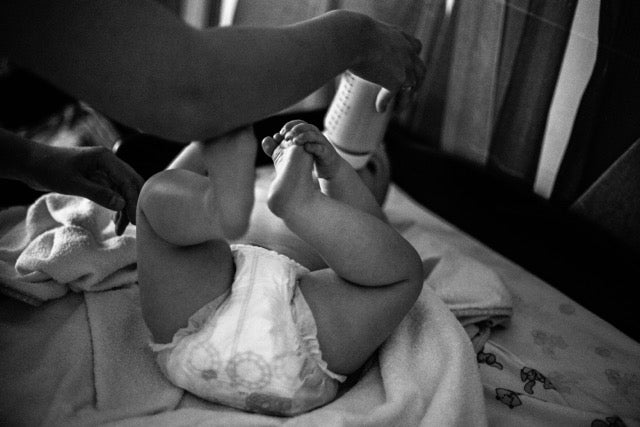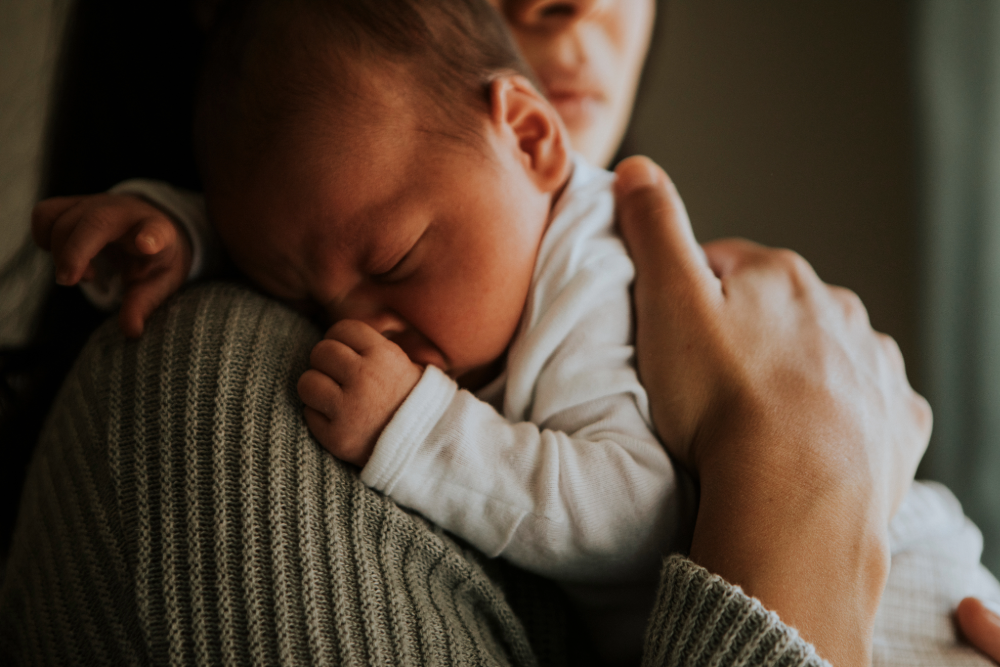
How often should you change a diaper? – Everything parents need to know
A topic that concerns all parents
As soon as the baby arrives, one topic suddenly plays a major role in everyday life: diaper changes. Whether cloth diapers or disposable ones, the question of how often diapers should be changed concerns almost all new parents. And as is often the case: There are no hard and fast rules, but there are many helpful recommendations.
In this article, we'll explain how often you should change your baby's diaper, how to tell when it's time, what the differences are depending on age—and what you need to consider when it comes to nights out, outings, and sensitive skin.
Why regular diaper changes are so important
A wet bottom isn't just uncomfortable for your baby—it can also quickly lead to skin problems. A full diaper creates a warm, humid environment that irritates baby's delicate skin and makes it vulnerable. Urine and stool, in particular, can put a lot of strain on the skin, leading to redness, sores, or even diaper rash.
Regular diaper changes not only promote well-being, but also promote healthy skin and hygiene. It also supports your child's body awareness and is an important moment of care and bonding.
How often should I change a diaper? A guide by age
Newborns (0–4 weeks)
In the first few weeks of life, babies usually have wet diapers very frequently—sometimes every 1.5 to 2 hours. This is completely normal and a sign that they're drinking well. During this time, it's a good idea to change diapers about 8 to 12 times a day —on average, every two to three hours, and even more often during the day. As soon as a bowel movement appears in the diaper, it should be changed immediately to avoid skin irritation.
Infants (1–6 months)
As babies grow older and their digestive systems mature, the frequency decreases somewhat. 6–8 diaper changes per day are considered normal during this phase. Many babies at this age have a full diaper, especially in the morning after waking up and after breastfeeding or a bottle. However, the rule still applies: change immediately after each bowel movement.
From the 6th month
As soon as complementary foods are introduced, stools also change—they become firmer, less frequent, and also more odorous. The number of wet diapers decreases somewhat. Five to six changes a day are usually sufficient—provided you check regularly to make sure the diaper is dry and the baby is comfortable.
Changing diapers at night – yes or no?
Many parents ask themselves: Should I change the diaper at night or should I let my child sleep through the night?
Generally speaking, if your baby sleeps well at night, doesn't have a bowel movement, and doesn't overflow, you don't necessarily need to change it. Modern diapers are so absorbent that they can keep your baby dry overnight without putting too much strain on their skin.
Things are different if your baby has a sore bottom, very sensitive skin, or regular nighttime bowel movements. In these cases, you should also perform a gentle diaper change at night – as quietly as possible, with dim lights and without too much stimulation, so that your baby can fall asleep easily afterwards.
How do I know when the diaper needs to be changed?
The surest signs that a diaper change is necessary are:
-
The diaper is noticeably heavy or feels full.
-
You smell an intense odor (especially when you have a bowel movement).
-
Your baby seems restless or fussy.
-
It often touches the diaper area or kicks noticeably.
-
You notice redness or initial irritation on your skin.
A practical tip: Many modern diapers have so-called wetness indicators – colored stripes that change color when the diaper is full.
Tips for everyday life: How to do it stress-free
Fixed alternating rhythm
A clear daily routine helps you and your baby. Typical times for changing are: after waking up, after each feeding, before naptime, in the afternoon, and before bedtime.
Changing diapers with calm and closeness
Use diaper changes as a loving moment with your child. Talk to them, maintain eye contact, and touch them mindfully – this strengthens the bond and makes the process more enjoyable.
Always be prepared
Make sure changing supplies like fresh diapers, wipes or washcloths, cream, and a change of clothes are handy – even when you're out and about. This way, you can avoid stress from sudden surprises.
What to do if your bottom is sore?
Despite all precautions, irritation can sometimes occur. In such cases, it is important to:
-
Change diapers frequently to prevent additional moisture.
-
Gentle cleaning with lukewarm water and soft washcloths only.
-
Air drying: Let your baby kick around regularly without a diaper.
-
If necessary, use a zinc-containing wound protection cream.
If the symptoms persist for more than 2-3 days or worsen, you should consult your pediatrician or midwife.
Cloth diapers or disposable diapers – does it make a difference?
Cloth diapers usually require more frequent changes because they are less absorbent. However, you know more precisely when they're wet, allowing you to react more effectively. Even with cloth diapers, it's important to change immediately after each bowel movement and to use skin-friendly materials.
Conclusion: Listen to your baby – not just the clock
The best answer to the question "How often should you change a diaper?" is: As often as necessary. Your baby will usually let you know very clearly when they're feeling unwell. A careful eye, a little sensitivity, and a bit of routine will help you quickly recognize your child's needs—and provide loving support from the very beginning.


